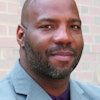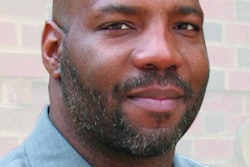While in graduate school, a professor of Dr. Yohuru Williams’ told him that his scholarship was his ticket to the classroom and that he had a responsibility to make it relevant and have value. It’s something Williams never forgot.
But Williams never thought he’d be teaching, much less contemplating the relevancy of his research. Growing up, people frequently suggested he enter the legal profession, often commenting on his impressive speaking abilities. And whether it was a result of watching too many episodes of “L.A. Law,” as he confesses, or the high school internship at a law firm, Williams was essentially law-school bound when he entered the University of Scranton, and he planned to major in political science.
His history classes, however, became his passion, while the political science courses began to feel like a chore. It wasn’t long before a professor recommended Williams pursue a doctorate, and the rest, as they say, is history.
Yet Williams has not abandoned his interest in law. His primary area of research is African-American history, but more specifically African-Americans and the law. The Black Panthers have been the subject of several of his books and scholarly articles because of their encounters with the legal system, prompting him to write his first book, Black Politics/White Power: Civil Rights, Black Power and the Black Panthers in New Haven.
“They became one of the organizations most identified with the idea of armed self-defense. Huey Newton and Bobby Seale carrying around copies of the pocket Constitution … They really embody everything that I study — the law, the Constitution and American democracy,” Williams says.
Dr. Peniel E. Joseph, associate professor of Africana Studies at Brandeis University, says Williams is one of the most exciting scholars of his generation.
“He’s written the first local case study of the Black Panthers with his first book. It’s a groundbreaking study that shows the ways in which the Panthers really evolved out of local struggles for community empowerment in New Haven,” says Joseph, author of Waiting ‘Til the Midnight Hour: A Narrative History of Black Power in America.





















